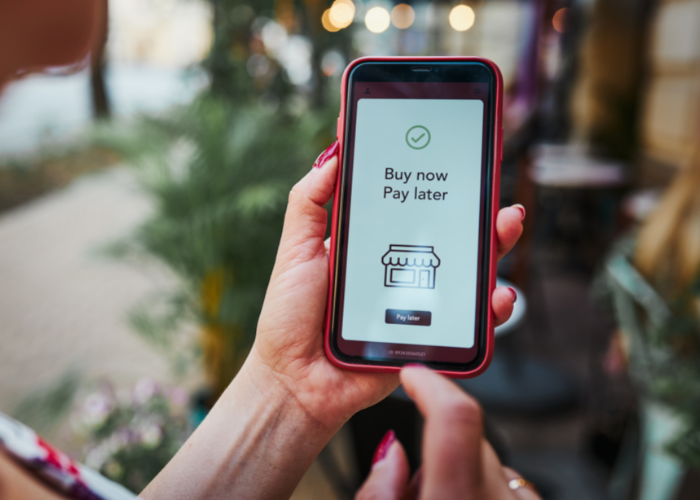Marketplaces or brand stores in the D2C business?
The brand’s official online store and marketplaces are different channels of branded D2C sales (Direct-to-Customer) that often compete for the same customers and the same marketing budget. To make this choice easier, let’s look at their advantages and disadvantages. Maybe you’ll find it’s beneficial to use both types of sales channels.
Marketplaces are online trading platforms and act as intermediaries between buyers and sellers. These are the well-known Amazon, Wildberries, Ozon, AliExpress, and others. Their popularity and large user base present significant advantages to sellers.
Internet selling platforms run advertising campaigns attracting more and more new customers. It is relatively easy for the seller to start working with the marketplace because it usually provides logistics and fulfillment services. Most modern marketplaces offer special services for brands and manufacturers. They can even have their brand store within the marketplace. Essentially, the platform creates the opportunity for the brand to sell directly to end customers.
Unfortunately, even with these advantages, there are several challenges:
- The main one is the restrictions for brands connecting with end customers. Marketplaces are wary of sellers’ attempts to obtain customer contact information and interact with them directly, creating conflict between marketplaces and brands.
- The second significant problem is the vast number of sellers. Competition in such services is very high, and there are practically no tools for creating a unique shopping experience to increase customer loyalty to the brand within the marketplace. On the marketplace pages, the products of even the best and world-famous brands are constantly next to discounted goods of little-known competitor companies.
- Setting up advertising has become almost as complex as other advertising channels, such as targeting, remarketing, or search term advertising. These platforms previously provided a simple interface and capabilities. Now sellers have to pay for promotions to the marketplace.
- The marketplace provides logistics services, but how much is it interested in the quality of these services? Often, both buyers and sellers are dissatisfied. Sellers receive negative reviews for poor quality delivery, but they can’t do anything about it because the marketplace controls it. At the same time, unscrupulous buyers can return goods after using them for free making them unsaleable.
- The relationship between the marketplace and the sellers is unequal. The trading platform has much more power resulting in strict conditions for sellers: excessive requirements for the packaging of goods, large commodity balances, an extended payment cycle for products already sold, and sellers providing discounts or refunds to buyers without any conditions.
Before the explosive growth in the popularity of marketplaces, the D2C branded sales model assumed that the manufacturer sells its goods directly to customers through online channels, bypassing wholesale intermediaries, distributors, and retailers. Usually, he creates his online store in the form of a website or mobile application, uses a CRM system, email and SMS mailings, and social networks.
Launching such a sales channel is often difficult for companies that make great products but do not have experience in online promotion. In addition, they are afraid to compete with their distributors and dealers. Though this method is generally more complex and costly than selling in marketplaces, it gives brands significant advantages:
- Direct control of the entire chain of sale and delivery of goods allows you to increase margins and profits
- Direct communication with consumers increases their loyalty by creating and continuously improving the branded customer experience. If buyers often filter the price and choose the cheapest product on marketplaces, loyal brand customers do not consider other options except for their favorite brand. Direct communication allows you to use online consultations, implement loyalty programs, offer bonuses and non-standard services such as extended warranty or installation.
- Using your own online sales channels allows you to explore the preferences and behavior of consumers. The data comes in real-time, and the complete information helps improve analytics by order of magnitude, create new products, and see customers’ instant reaction to new products even before they are on sale. Ultimately, this gives significant savings in both marketing budget and logistics costs.
- Unlike a third-party platform, the manufacturer offers a full range of products in the branded online store. Information about the product is presented in more detail, using different text, graphics, and multimedia content.
- It opens a massive field for experimentation and the introduction of modern technologies to meet the expectations of even the most demanding buyers. Brands offer product customization, personalization of the product itself and its packaging, subscription to goods of steady demand, issue limited editions, introduce loyalty programs and organize trading promotions.
The use of a particular channel of D2C sales, or combination, depends on the scope of the company, its goals, ambitions, and stage of the life cycle. Many brands successfully combine sales in their online store and through marketplaces. In any case, the transition to modern digital online distribution models is inevitable for brands and manufacturers who want to maintain a strong position in the market and overtake their competitors.
Designing D2C forms and methods is a complex process, and errors can be costly for the brand. Our company has accumulated extensive experience in the development and implementation of D2C solutions around the world. That’s why we can help you find the direct sales channels that are the right fit for your brand. Your business will then be able to move into the digital world as effectively as possible.
Syntes, an international company, develops a next-generation MDM (Master Data Management) and PIM (Product Information Management) cloud platform and provides brands and manufacturers with services for creating, managing and automating D2C (Direct-to-Customer) sales and marketing channels. Syntes solutions and services are used by the world’s leading brands and manufacturers of consumer and business products such as Razer, Scarlett, Pantone, X-Rite, AVerMedia and others. Syntes is a registered trademark of Syntes, Inc.
Mentioned trademarks and company names are registered trademarks of their respective owners.
© Copyright Syntes, Inc. Copying, reprinting, and any reproduction is permitted only with the written permission from Syntes, Inc.




